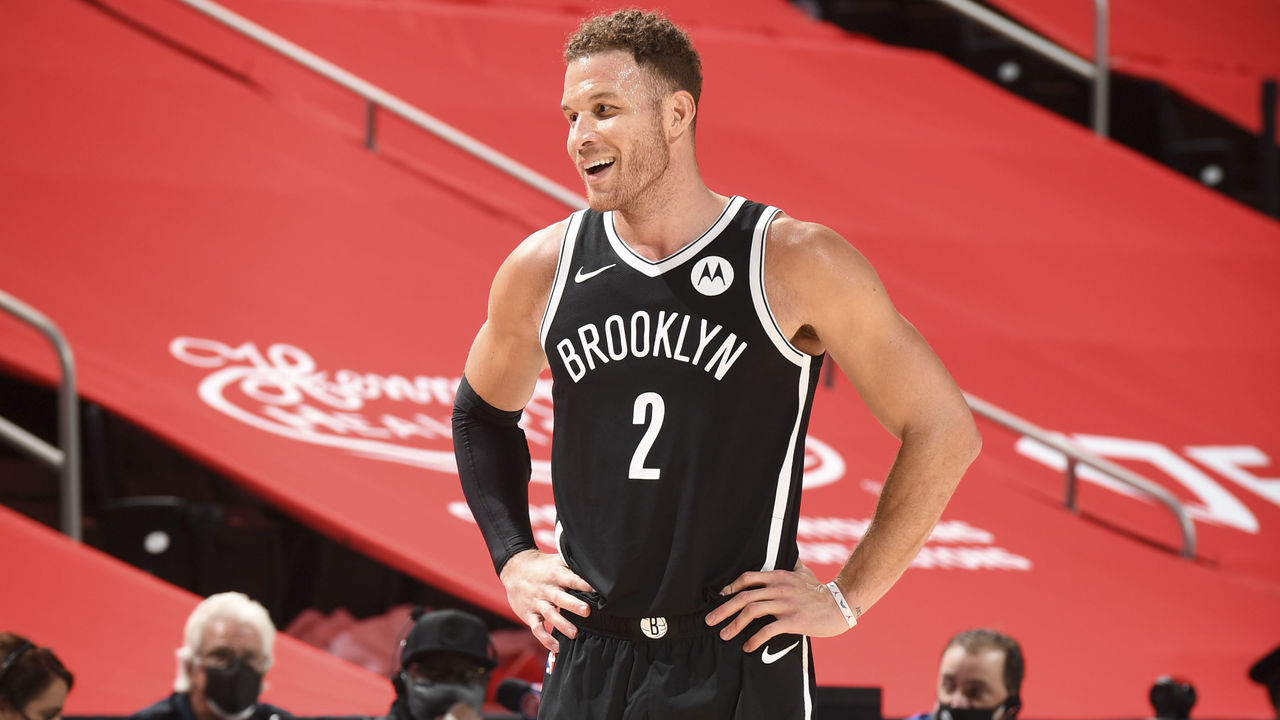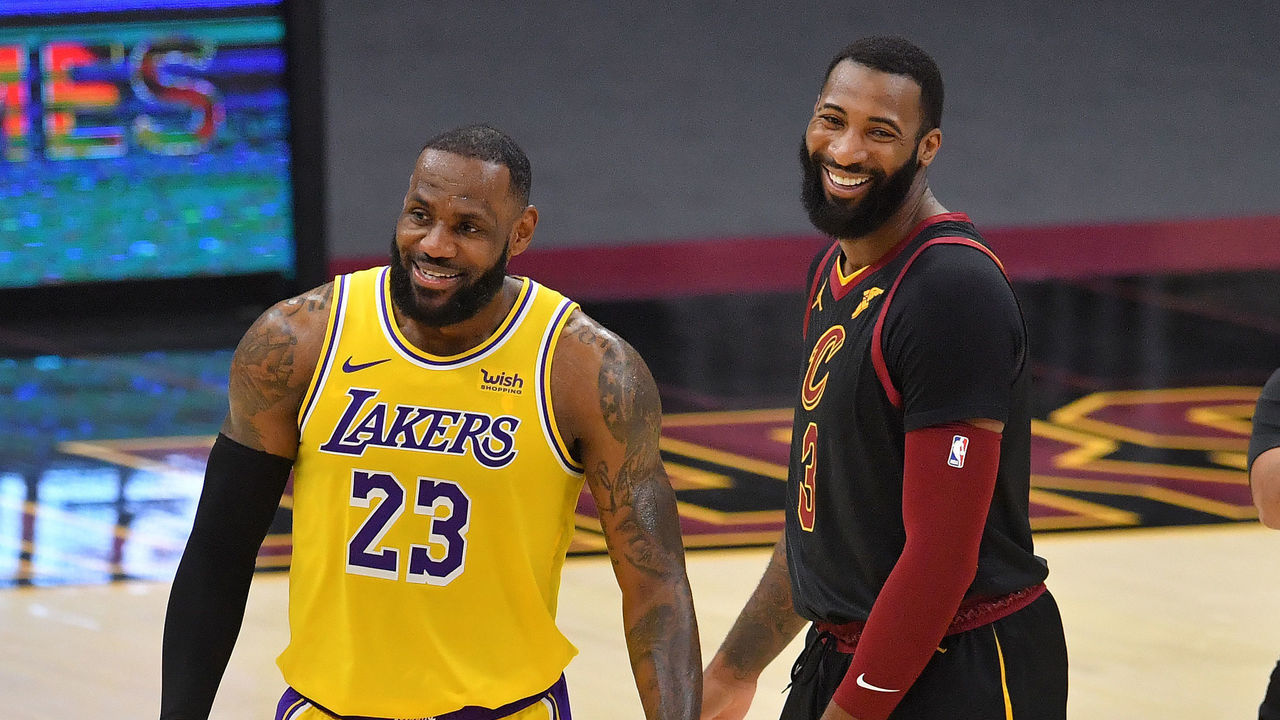Stop whining about contenders loading up in the buyout market
"Unfair." "Ring chasing." "Big markets versus small markets."
We've arrived at the annual point of the NBA season where those words get tossed around like journeyman reserves.
As the dust settles on the buyout market and castoff veterans seek a championship, the same empty complaints come up every year. This season, the market was dominated by a handful of well-known players joining stacked contenders, amplifying those grievances.
Blake Griffin and LaMarcus Aldridge joined the Brooklyn Nets. Andre Drummond is now a Laker. DeMarcus Cousins is expected to join the Clippers.
Small-market executives told Sports Illustrated's Howard Beck that the trend is concerning, arguing that the buyout market only aids big-market contenders. "The system is flawed. You shouldn't be adding to your team this deep in a season without giving things up," one small-market general manager said.
But whether you're a fan who doesn't quite grasp how inconsequential these moves are, or an envious team looking up at the Nets, Lakers, and Clippers in the standings, you've got to stop whining. There's nothing unfair about this.
And it's certainly not a new phenomenon.
LeBron James' 2010 Decision may have helped usher in an era of player empowerment, but it didn't fundamentally change the way the buyout market operates. For as long as most of us can remember, star partnerships, buyouts, and veterans trying to complete their careers with rings have been commonplace in the NBA (and pro sports in general).
It's also important to keep the buyout additions in perspective - don't let the high-profile names of Griffin, Aldridge, Drummond, and Cousins distract from the substance.
Midseason buyout acquisitions, in general, are often overrated due to name recognition. Griffin and Aldridge joining the Nets is a perfect example. Yes, both players have legitimate Hall of Fame arguments. They've combined for 13 All-Star appearances and 10 All-NBA selections. Both were All-Stars as recently as two years ago, and Griffin even made an All-NBA team in 2018-19.
But anyone who's paid attention the last two seasons understands that the on-court impact of Griffin and Aldridge will be more in line with the minimum contracts they signed with Brooklyn than the contracts that the Pistons and Spurs, respectively, needed to escape.
There's a reason many of the names discussed here headlined a feature I wrote in March about the "washed-up big-man market."
It's true that the Nets can now play an entire lineup of 2019 All-Stars. It's also disingenuous to insinuate that the 2021 versions of Griffin and Aldridge are anything close to their 2019 forms.
As Griffin aptly put it earlier this week, "It's kind of funny to me because for the last couple years, all I've heard is how bad I am. You sign with this team, and everybody's like, 'That's not fair.'"

If rival teams believed Griffin was still a game-changing talent, one of them would've traded for the former superstar and the $38.9-million player option for next season that was attached to him.
If Aldridge's on-court impact matched his $24-million salary, San Antonio would've used him more, or another contender would've ponied up real talent and assets to acquire him. Either way, Aldridge wouldn't have had to give up more than $7 million in 2020-21 salary, and the Spurs wouldn't have allowed him to walk away for nothing.
Cousins is a shell of his former self after a string of devastating injuries, and he's as inefficient as an undersized guard in the restricted area.
Drummond is more of an outlier; the 27-year-old is much closer to his prime than the others and was still posting gaudy numbers. How can the defending champions - with LeBron James and Anthony Davis already in tow - casually add a player averaging 17.5 points, 13.5 rebounds, 2.6 assists, 1.6 steals, and 1.2 blocks for nothing, smack-dab in the middle of the season?
The answer is that the market itself dictated these terms.
If Drummond's impact matched his statistical production or his $28.8-million salary in the final year of his max contract, an interested team would've cobbled together a trade package worth something to the Cavs. Cleveland clearly signaled its openness to a trade in mid-February and held Drummond out to protect his health. If a rival was that concerned about him joining the Lakers for free, it could've done something about it.
No team believed the sacrifice of matching salary in a trade for Drummond was worth the reward, or outweighed the risk of him joining a stacked team. That's a reasonable cost-benefit analysis and a justifiable decision. But those teams have to live with the consequences.

It's true that teams often agree to buyouts under the pressure of needing to keep players and agents happy, and perhaps the league could institute a rule where teams can only sign one bought-out player per season. But again, it's only an issue when a trade can't be worked out.
And remember: The teams that can lure the best talent on the buyout market are in that position for reasons that extend far beyond location.
Franchises and fans miffed by the results of the last couple of weeks should be taking notes from the Nets, Lakers, and Clippers rather than wasting time complaining about them.
Under GM Sean Marks, the Nets rose from the ashes of the most hopeless situation in league history. Despite limited avenues for improvement, Brooklyn built a scrappy and exciting young team that played smart basketball on both ends. A core of Spencer Dinwiddie, Joe Harris, Jarrett Allen, Caris LeVert, and D'Angelo Russell eventually put the Nets in position to use a plethora of cap space in 2019 to land Kevin Durant and Kyrie Irving and then to trade for James Harden in 2021.
That's how the Nets made themselves the most attractive team to Griffin and Aldridge, two veterans who yearn for a championship.
Being located in New York City certainly helped the Nets' quest to become a free-agent destination. But the Knicks are the city's legacy franchise and play in what's considered the basketball Mecca, and their biggest free-agent prize was Amar'e Stoudemire … 11 years ago.
San Antonio is one of the league's smallest markets, but during the Spurs' two-decade run of perennial contention, a number of high-profile buyout candidates chose the Alamo City, including Tracy McGrady. Aldridge himself joined the Spurs as a marquee free agent in 2015. Small-market fans can't cry foul now that the Spurs are on the other side of the NBA's cycle.
It's true that acquiring LeBron was a boon to a floundering Lakers franchise, and he did make his choice mostly because of L.A.'s location and advantages. But the team also drafted well enough to turn Brandon Ingram, Lonzo Ball, and Josh Hart, among others, into Davis (who wanted to be a Laker).
The Clippers' decision to sell the farm to get Paul George from the Thunder (and, in turn, sign free agent Kawhi Leonard) might backfire in the long run, but the organization built a culture that changed perceptions of the franchise and was able to offer Shai Gilgeous-Alexander, plus a built-up haul of draft capital, to Oklahoma City for George.
The Warriors drafted the dynastic trio of Stephen Curry, Klay Thompson, and Draymond Green before Kevin Durant - or any veteran free agents - thought about taking their talents to The Bay. Golden State was a sunny California market boasting a fervent fan base for decades. When did that help the Warriors before they began to operate in a manner that was "light years" ahead of the competition?
Other than the Q Score of the available free agents, there was nothing unusual or unfair about this year's buyout market.
People just love to complain, especially when they come out on the losing end of a game, season, or transaction. Championship contention in the NBA is ultra exclusive, as it always has been in a star-driven league of haves and have-nots.
Everyone cries about it. Until their team is the one sitting at the cool kids' table.
Joseph Casciaro is theScore's senior basketball writer.
HEADLINES
- Deal or no deal: Does Anthony Davis make sense for the Raptors?
- Wemby becomes 3rd to record 100 straight games with at least 1 block
- Blake Griffin, Candace Parker among 1st-time nominees for Naismith HOF
- Sabonis to miss at least 4-5 more weeks with knee injury
- Buzelis, Vucevic score 24 each to lead Bulls past reeling Cavaliers